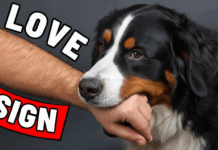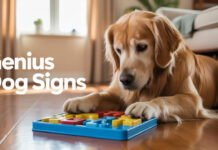Last Updated on August 15, 2023 by Dogs Vets
7 Things Dogs Hate About Humans
Dogs are often considered man’s best friend, offering companionship, loyalty, and endless affection. However, as much as we adore our furry companions, there are certain behaviors and actions that our canine friends may find quite displeasing.
In this article, we’ll delve into 7 things that dogs secretly despise about us, shedding light on their perspectives and offering insights for better understanding.
1. Lack of Clear Communication
Imagine not understanding the language spoken around you – that’s how dogs often feel. They rely heavily on body language, tone, and gestures to grasp our intentions.
When we fail to communicate clearly, dogs can become confused or anxious. For instance, shouting might be perceived as aggression, causing unnecessary stress.
2. Ignoring Their Social Needs
Dogs are social animals that thrive on interaction. Yet, our busy lives sometimes lead to neglecting their social requirements.
Long hours alone can trigger separation anxiety, leading to destructive behavior. Spending quality time with your furry friend not only strengthens your bond but also improves their overall well-being.
3. Hugging and Petting Overload
While humans find comfort in hugs and cuddles, dogs might not share the sentiment.
Tight embraces and excessive petting can be overwhelming for them, causing stress or discomfort. Opt for gentle strokes and observe their body language to ensure a positive interaction.
4. Inconsistent Rules
Dogs appreciate routine and consistency. When rules constantly change, confusion arises.
For instance, if jumping on the couch is allowed one day and discouraged the next, dogs may become anxious or hesitant. Clear and consistent boundaries help them feel secure.
5. Strong Scents and Perfumes
Dogs have a highly sensitive sense of smell, and overwhelming scents can be bothersome.
Strong perfumes, cleaning agents, or even unfamiliar scents on clothing might make your pup uneasy. Opt for mild scents to keep them comfortable.
6. Forced Interaction
Just like humans, dogs have their moods. Forcing interaction when they’re not in the mood can lead to resistance or irritation.
Respect their cues and allow them personal space when needed. This fosters a healthier relationship built on mutual understanding.
7. Lack of Exploration Time
Dogs thrive on exploration and mental stimulation. Keeping them confined indoors without exposure to new environments can lead to boredom and restlessness.
Regular walks, outdoor playtime, and new experiences keep their minds sharp and their spirits high.
Conclusion
Understanding these aspects can lead to a more fulfilling relationship with our canine companions.
Remember, the key lies in empathy and paying attention to their non-verbal cues. By acknowledging and respecting their dislikes, we can forge a deeper bond built on trust and mutual respect.
FAQs
Do dogs really hate hugs?
While some dogs tolerate hugs, many find them uncomfortable or even stressful. Pay attention to their body language to gauge their comfort level.
Can dogs get anxious when left alone for too long?
Yes, prolonged periods of solitude can lead to separation anxiety in dogs, causing them to exhibit destructive behaviors.
Are scented candles harmful to dogs?
Certain scents, especially strong ones, can irritate dogs’ sensitive noses. Opt for pet-friendly scents or ensure proper ventilation.
Why do dogs sometimes avoid interaction?
Just like humans, dogs can have off days or moments when they prefer solitude. Respecting their space is crucial for a harmonious relationship.
How do I establish consistent rules for my dog?
Set clear boundaries and enforce them consistently. Avoid making exceptions, as this can confuse your dog.
Can indoor-only dogs benefit from outdoor time?
Absolutely! Even indoor dogs benefit from fresh air, mental stimulation, and exposure to new sights and smells.
What’s the best way to communicate with my dog?
Dogs respond well to positive reinforcement, using clear cues, and observing their body language. Training sessions can also enhance communication.
Remember, fostering a strong connection with your dog requires patience, understanding, and a willingness to adapt to their needs.
By avoiding these common pitfalls, you can create a happier and healthier relationship with your four-legged friend.
Sources:
- American Kennel Club – Understanding Your Dog for Dummies
- Psychology Today – How to Talk to Your Dog
- The Spruce Pets – Why Dogs Hate Hugs























